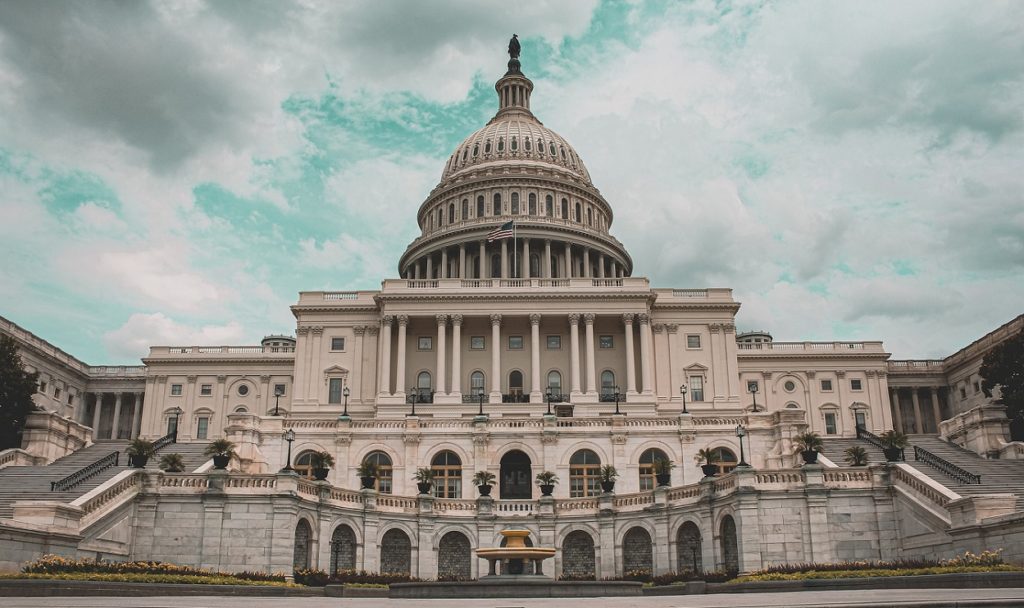
A group of 18 Republican members of US Congress have published a letter calling for the preservation of the Inflation Reduction Act (IRA) amid Republican Party attempts to repeal the bill.
Specifically, the letter to the Speaker of the US House of Representatives, Mike Johnson, focused on the impact the IRA has had on the US domestic energy sector.
Unlock unlimited access for 12 whole months of distinctive global analysis
Photovoltaics International is now included.
- Regular insight and analysis of the industry’s biggest developments
- In-depth interviews with the industry’s leading figures
- Unlimited digital access to the PV Tech Power journal catalogue
- Unlimited digital access to the Photovoltaics International journal catalogue
- Access to more than 1,000 technical papers
- Discounts on Solar Media’s portfolio of events, in-person and virtual
The signatories levied criticisms at the IRA, calling it a “deeply flawed bill that will prevent the development of lifesaving cures, empower the IRS to harass small businesses, and distort energy markets,” before nonetheless urging Johnson to “protect and refine” the tax credits and schemes “that are making our country more energy independent and Americans more energy secure”.
The signatories wrote: “Today, many US companies are already using sector-wide energy tax credits – many of which have enjoyed bipartisan support historically – to make major investments in new US energy infrastructure.”
Solar PV investments
Many of those companies benefiting from tax credits are in the solar PV industry. A report last month from sustainably finance firm Crux showed that the tax credit transferability market alone – which allows project developers and manufacturers to sell IRA tax credits for cash and widens the net of beneficiaries of the credits – reached US$11 billion in the first half of 2024. This sum is a fraction of the total benefits gained through the Investment Tax Credit (ITC) and Production Tax Credit (PTC) schemes.
Data released this week by US renewable energy industry group American Clean Power Association (ACP) showed that, since mid-2022, US$500 billion of investment has been planned for clean energy production and generation projects in the US, with US$75 million already invested in built projects.
It also said over 55GW of new renewable energy capacity has come online in the same period.
ACP said that 95 solar PV manufacturing projects have been announced in the last two years, covering the silicon supply chain in modules, cells, ingots, wafers and polysilicon, as well as the balance of system components like trackers and inverters.
Its full Investing In America report can be read here.
Electoral uncertainty
The US election in November and the potential for a change of administration has introduced uncertainty into the US domestic energy industry, the signatories’ letter said.
“We hear from industry and our constituents who fear the energy tax regime will once again be turned on its head due to Republican repeal efforts,” it said. “Prematurely repealing energy tax credits, particularly those which were used to justify investments that already broke ground, would undermine private investments and stop development that is already ongoing. A full repeal would create a worst-case scenario where we would have spent billions of taxpayer dollars and received next to nothing in return.”
A May report from energy market analyst Wood Mackenzie said that a Republican general election victory, returning Donald Trump to the White House, could jeopardise US$1 trillion in energy investments. WoodMac predicted that ITC and PTC funds would be halted under a second Trump administration, however the entire IRA would be unlikely to be repealed.
Whilst the IRA still exists in its current form, there have been calls for more protectionist policies around it. Earlier this month, a bipartisan group of senators called for the exclusion of Chinese solar PV companies from manufacturing tax benefits, saying that Chinese manufacturers “undermine” the US industry through state subsidies in their home country.







